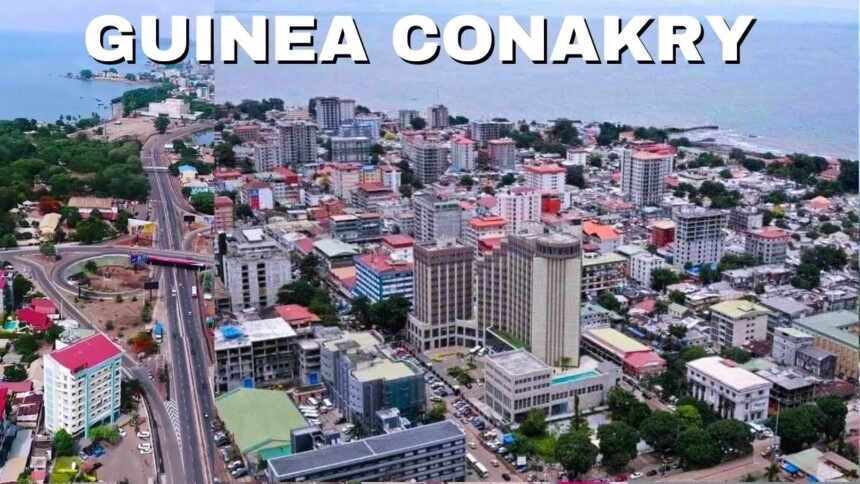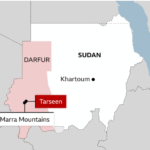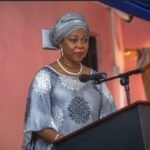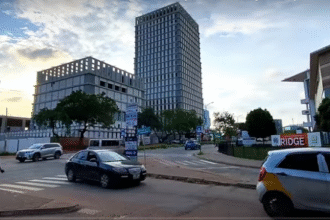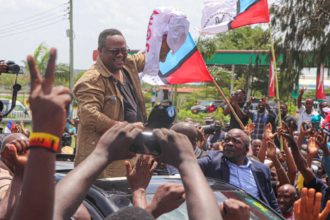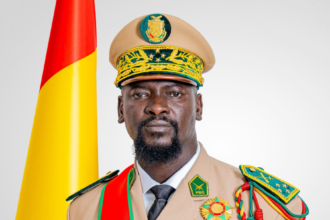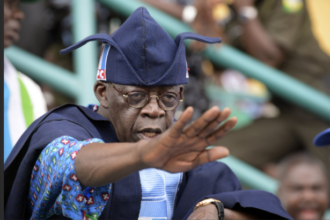By Lamin Guèye
Conakry, Guinea – A profound paradox grips Guinea, placing its future at a critical crossroads. The military junta, led by Colonel Mamadi Doumbouya, has demonstrably delivered tangible social and economic improvements across the nation, yet these very advancements now threaten to overshadow and even derail Guinea’s long-sought transition to a democratic electoral process.
Since seizing power in September 2021, Colonel Doumbouya’s administration has channeled its energy into an ambitious program of infrastructure development and initiatives aimed at improving the daily lives of Guineans. Reports from across the country highlight the construction of new roads, improved electricity access, renovated public services, and efforts to streamline bureaucratic processes – all welcome changes for a populace long accustomed to corruption and stagnant public services.
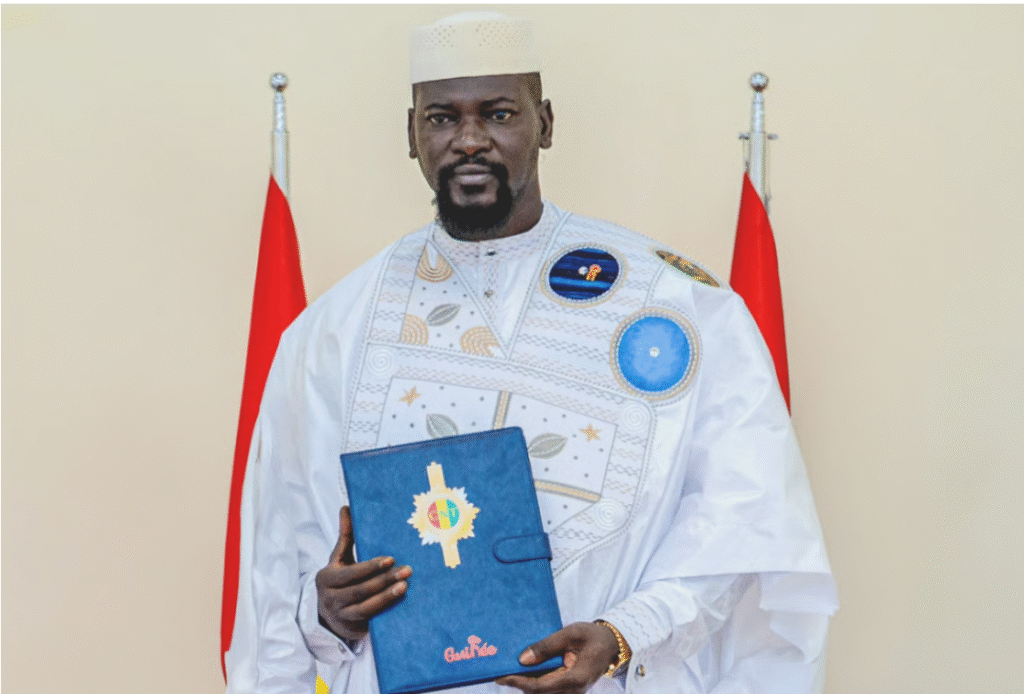
This focus on immediate, visible betterment has resonated deeply with many citizens. “For years, we’ve heard promises from politicians who cared only about themselves,” remarked Fatoumata Diallo, a market vendor in Conakry. “Now, we see things happening. The lights stay on longer, the roads are better. What good is a ballot box if our children study by candlelight?”
However, this undeniable progress has come at a cost. The consolidation of democratic institutions, the drafting of a new constitution, and the establishment of a clear, unimpeded timeline for transparent elections, initially pledged by the junta, have been pushed to the periphery. Critics argue that the interim government, which initially promised a swift return to civilian rule, appears increasingly entrenched, leveraging its developmental successes to justify a prolonged stay in power.
This situation has ignited a fervent national debate, deeply dividing the populace. On one side are the proponents of immediate socio-economic betterment, who argue that years of civilian governments failed to deliver basic services and that the current stability and progress, however achieved, are paramount. They point to the widespread disillusionment with past democratic experiments, often marred by corruption and political infighting, as justification for prioritizing development over what they see as abstract political ideals.
Conversely, a vocal segment of civil society organizations, political opposition figures, and human rights advocates vehemently argue for swift, unimpeded democratic rule through elections. They warn against the deceptive allure of authoritarian efficiency, emphasizing that true and sustainable progress is built on the pillars of rule of law, accountability, and the free expression of the people’s will.
“We cannot sacrifice our democratic aspirations for a few paved roads,” stated Oumar Barry, a prominent pro-democracy activist. “This is a dangerous precedent. While infrastructure is vital, it cannot replace the fundamental right of citizens to choose their leaders and hold them accountable. The temporary comfort offered by the junta risks entrenching a system that ultimately stifles freedom and long-term stability.”
The international community, including regional bodies like ECOWAS and the African Union, has consistently pressed the Guinean junta to adhere to its initial commitments for a timely democratic transition. However, as the developmental achievements multiply, the pressure for swift elections seems to be met with growing internal resistance, fueled by a populace that, for the first time in a while, sees tangible improvements in their daily lives.
Guinea now stands at a critical juncture. The achievements of Colonel Doumbouya’s administration are undeniable, yet they pose a profound challenge to the very democratic future they initially pledged to uphold. The choice confronting Guineans – between continued, albeit undemocratic, progress and the uncertain path of immediate electoral democracy – will ultimately define the nation’s trajectory for years to come.


